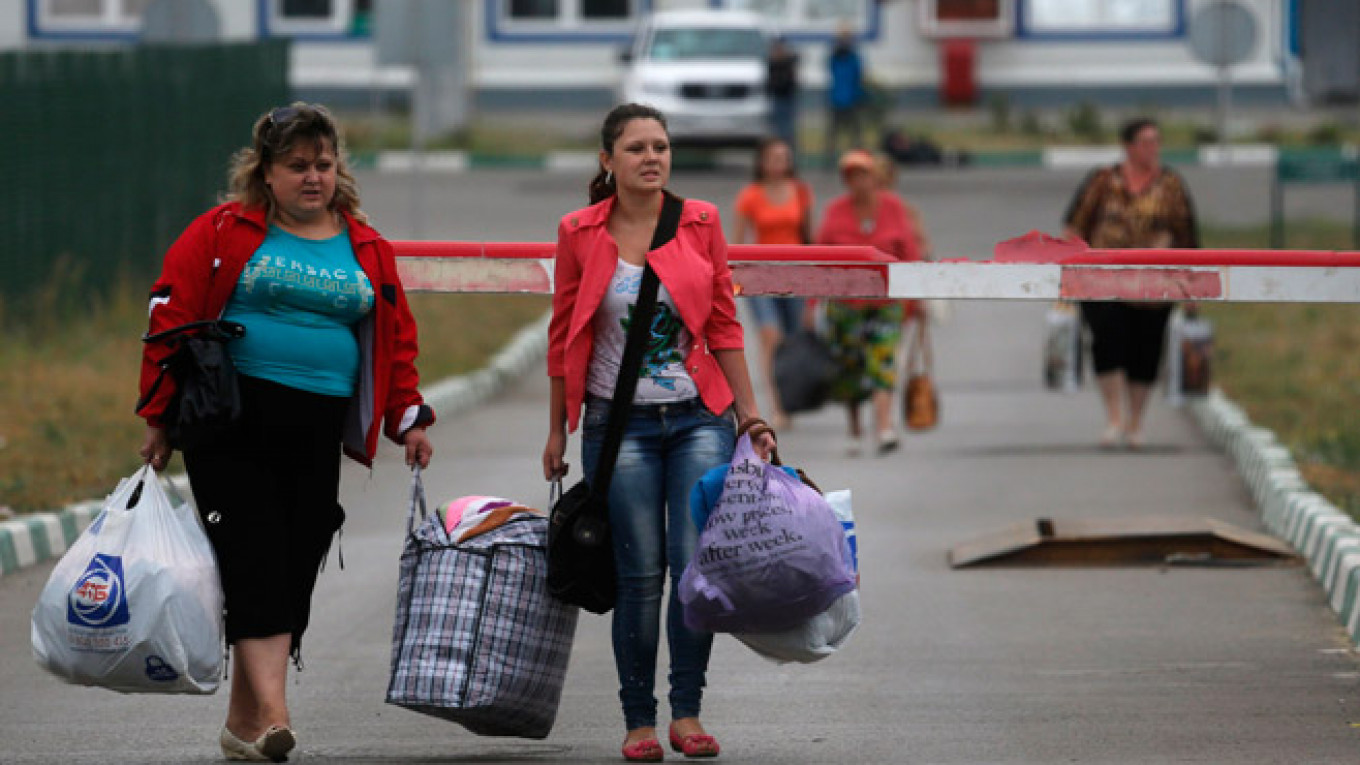Stalin loved to resettle entire populations, casually transporting huge numbers of people over great distances like cattle. For example, over just two weeks in 1944, 180 Soviet trains forcibly relocated nearly 500,000 Chechens from their homeland to Kazakhstan and Kyrgyzstan. As the train wagons hurtled along, 56 babies were born and 1,272 died.
Two months later, Stalin decided to ship 186,000 Crimean Tatars to the same destinations. He allotted only three days for the task. Workers unloaded 200 corpses from the wagons before the trip had ended.
The Chechens were permitted to return to Chechnya in 1953, after Stalin died, but the Crimean Tatars had to wait until 1989 when former Soviet leader Mikhail Gorbachev finally said they could go home.
There were also less violent resettlements. In 1934 Stalin — acting on some inexplicable fear — decided to establish a Jewish Autonomous Region in faraway Siberia. The Soviet authorities "politely explained" to the country's Jewish population the "advantages" of living in the region, and by 1937, 20,000 Jews had "taken the hint" and relocated there.
World War II temporarily derailed Stalin's plans, but in the early 1950s he announced his "struggle against cosmopolitanism." During that campaign, he had Jews in Moscow and other big cities fired from their jobs and expelled from universities, "strongly advising" that they go live in Siberia.
Fortunately for the Jews, Stalin died at the peak of that campaign. When the Soviet authorities permitted Jews to emigrate to Israel in the 1980s, the Jewish Autonomous Region quickly emptied of its Jews, and the Jewish community now accounts for less than 1 percent of the local population.
Every Soviet leader has felt it his duty to relocate great masses of people. Stalin's successor, the relatively liberal Nikita Khrushchev, announced his Virgin Lands Campaign to turn the wild steppe of Kazakhstan into millions of hectares of fertile farmland.
Millions of "volunteers" were sent to a barren landscape devoid of infrastructure. The program was a bust, but the 6 million Russians and Ukrainians sent there by the Communist Party remained in Kazakhstan. From the early 2000s, between 80,000 and 100,000 began returning to their native countries annually.
President Vladimir Putin has spoken about the unfavorable demographic situation in Siberia. The low standard of living, the isolation from cultural centers and the shortage of jobs force the people of those distant territories to move away, with the result that Russia's Far East is depopulating. But now Putin has found an unexpected solution to the problem.
Thousands of people have fled the fighting in eastern Ukraine, with some relocating to central and western Ukraine and others moving to the Rostov region and to Crimea. The exact number of refugees remains unknown because both sides in the crisis manipulate the figure for propaganda purposes, but even the most conservative estimates put the number at hundreds of thousands.
And now daily flights carry former Ukrainian residents to the remote Russian regions of Kolyma, Sakhalin, Kamchatka and various Siberian towns. Do those people want to go there? No!
I was shocked by an article published in a Magadan newspaper reporting that when the first airplane landed there with 400 Ukrainian refugees, journalists rushed forward to ask their questions but were stopped by the passengers asking, "Where are we?"
It turned out that when they were put on a plane in the Crimean capital of Simferopol, they were told they were flying to the Black Sea town of Anapa. And when they landed instead in Magadan — almost 7,000 kilometers to the east — they were told they were only entitled to that one free flight: for all flights out of Magadan, they would have to pay full price.
And that is the latest in the series of great Russian resettlement campaigns.
Andrei Malgin is a journalist, literary critic and blogger.
A Message from The Moscow Times:
Dear readers,
We are facing unprecedented challenges. Russia's Prosecutor General's Office has designated The Moscow Times as an "undesirable" organization, criminalizing our work and putting our staff at risk of prosecution. This follows our earlier unjust labeling as a "foreign agent."
These actions are direct attempts to silence independent journalism in Russia. The authorities claim our work "discredits the decisions of the Russian leadership." We see things differently: we strive to provide accurate, unbiased reporting on Russia.
We, the journalists of The Moscow Times, refuse to be silenced. But to continue our work, we need your help.
Your support, no matter how small, makes a world of difference. If you can, please support us monthly starting from just $2. It's quick to set up, and every contribution makes a significant impact.
By supporting The Moscow Times, you're defending open, independent journalism in the face of repression. Thank you for standing with us.
Remind me later.






